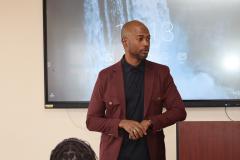Vice Chancellors Weekly Higher Education Digest: Sep 17, 2018
Varsities targeted as NSSF moves to audit growing list of defaulters By Victor Raballa THE DAILY NATION
Educational institutions are on the government radar in a move aimed at ensuring they honour their social security obligations to workers. In an audit to be carried out by the National Social Security Fund (NSSF) in partnership with workers’ unions, the institutions targeted include the 31 public universities, colleges, secondary and primary schools.
https://www.nation.co.ke/business/NSSF-moves-to-audit-growing-list-of-defaulters/996-4761968-3ywpri/index.html
KENYA: Universities feel the brunt of a market-driven agenda By Wachira Kigotho UNIVERSITY WORLD NEWS
A quarter of a century ago, Uganda’s Makerere University embarked on an academic journey hitherto undreamt of in Sub-Saharan Africa: intensive marketisation of higher education…. Dubbed by the World Bank as a quiet revolution… public universities in East Africa, almost in their entirety, adopted this model…. Now the bubble is about to burst…
http://www.universityworldnews.com/article.php?story=20180823152207609
Sharing your research with the public can change minds By Shari Graydon UNIVERSITY AFFAIRS CANADA
At a time when too many public conversations are dominated by the simplistic tweets of a powerful man with a legendary disregard for the truth, news about some recent research was especially welcome. It turns out that well-reasoned arguments featuring nuanced analysis of complex issues – the kind published in respected newspapers and online hubs – regularly persuade readers to embrace new ideas.
https://www.universityaffairs.ca/opinion/in-my-opinion/sharing-your-research-with-the-public-can-change-minds/
Can universities beat contract cheating? By Ann McKie TIMES HIGHER EDUCATION
As students increasingly turn to essay mills to do their work, Anna McKie explores what drives this global trend and how universities are fighting it…. An investigation by the UK’s Quality Assurance Agency in 2016 estimated that about 17,000 students are caught submitting ghostwritten essays each year in the UK – with the total number using essay mills likely to be far higher.
https://www.timeshighereducation.com/features/can-universities-beat-contract-cheating
Learning gain: political expedient or meaningful measurement? By Alex Forsythe, Carol Evans, and Camille Kandiko Howson TIMES HIGHER EDUCATION
The political craving for simple measures of learning gain is neither pedagogically informed nor sufficiently nuanced…. Measurement promises to provide transparency and comparability, motivate staff, improve quality and take you out for a beer on a Friday…. [T]he 2015 book Measurement Madness: Recognizing and Avoiding the Pitfalls of Performance Measurement [offers] countless examples of measurement’s tendency to change behaviour in perverse and cynical ways, rendering all those promises empty.
https://www.timeshighereducation.com/features/learning-gain-political-expedient-or-meaningful-measurement
Staying Power BY Apryl Motley BUSINESS OFFICER MAGAZINE
Investments in residential housing pay off for institutions that capitalize on the close link between student success and on-campus living…. Internal research conducted at higher education institutions indicates that students who live on campus perform better academically. In particular, the connection between two key measures of student success—graduation and retention rates—and requiring students to live on campus is becoming more evident.
https://www.businessofficermagazine.org/features/staying-power/
Do the Right Thing BY Nancy Mann Jackson BUSINESS OFFICER MAGAZINE
To minimize fraud, institutions are implementing trickle-down prevention strategies to promote a culture of ethical decision making and practices…. College and university employees regularly face decisions that may not seem to have a black or white answer or could be swayed by a conflict of interest. Because many people don’t interpret gray areas the same way, institutions need to develop a written policy that clearly defines the behaviors that are unacceptable.
Why Is College in America So Expensive? By Amanda Ripley THE ATLANTIC MAGAZINE
The business of providing an education is so expensive because college is different from other things that people buy, argue Feldman and his colleague Robert Archibald in their 2011 book, Why Does College Cost So Much? College is a service, for one thing, not a product, which means it doesn’t get cheaper along with changes in manufacturing technology (economists call this affliction “cost disease”).
https://www.theatlantic.com/education/archive/2018/09/why-is-college-so-expensive-in-america/569884/
Evolving Workforce Expectations By Steven Bahls TRUSTEESHIP MAGAZINE
Effective shared governance is hard work that requires an explicit commitment to understanding the differing responsibilities and vantage points of boards, administrations, and faculty. However, the vantage points of each are not monolithic. As the individuals making up the institution’s workforce evolve, so too must systems of shared governance.
https://www.agb.org/trusteeship/2018/summer/evolving-workforce-expectations
Here’s How Some Universities Are Raising Their Research Profiles By Eric Kelderman THE CHRONICLE OF HIGHER EDUCATION
Saint Louis University is using several increasingly common strategies to increase the research dollars it receives from federal grants, private contracts, and philanthropic donations. The measures include seed funding for small, promising projects that can grow over time, and more support and training for faculty members seeking grants. Here are some other key strategies that colleges are using to improve their research profiles, attract more money, and move up the rankings.
https://www.chronicle.com/article/Here-s-How-Some-Universities/244047?cid=cp212
Not enough diverse academic research is being published By Jenny J Lee and Alma Maldonado-Maldonado THE CHRONICLE OF HIGHER EDUCATION
Altbach and De Wit fault the academic system of pushing unnecessary publications and recommend reducing scholarly publishing by encouraging it primarily at designated research universities…. [B]but their overall recommendation to limit scholarly output is not only unrealistic, it is also elitist because it does not address systemic issues related to global power and control. Rather, this suggestion magnifies them.
http://www.universityworldnews.com/article.php?story=20180913095151857






